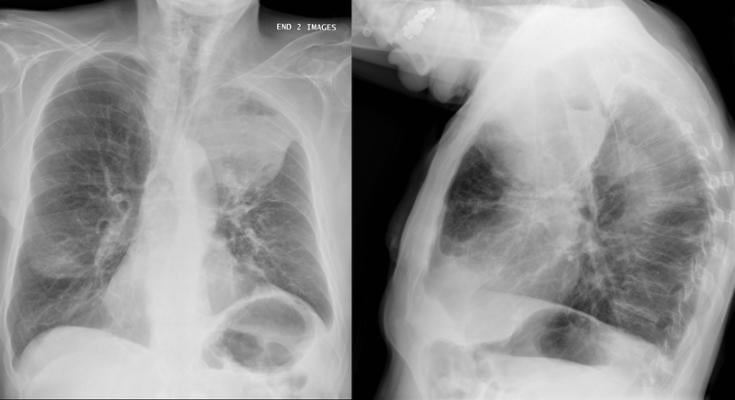
Getty Images
April 17, 2024 — A Medicare policy requiring primary care providers (PCPs) to share in the decision-making with patients on whether to proceed with lung cancer screening is fraught with confusion and lack of evidence-based information, and may actually be undermining the purpose for which it was created, Mount Sinai researchers say.
In their study, published in Annals of Family Medicine, the team reported that the policy, enacted nearly 10 years ago to encourage the use of lung cancer screening, is in urgent need of new research, protocols, and guidelines to enable physicians to make more confident and informed decisions around which patients are suitable candidates for lung cancer testing.
The policy of shared decision-making was intended to take into account the patient’s full health history. It was prompted by the fact that smokers have an increased risk of not just lung cancer but complex comorbidities—including cardiovascular or cerebrovascular disease and chronic obstructive pulmonary disease—from their tobacco exposure. The policy required counseling on the importance of adherence to annual lung cancer screening, impact of comorbidities and ability or willingness to undergo diagnosis and treatment, but did not address the increasing prevalence of comorbidities, or give any guidance on how to assess the impact of comorbidities on screening, diagnosis, and treatment. That, the researchers said, is part of the problem.
“The policy was added in 2015 for a well-intentioned reason, but unfortunately it’s caused a great deal of confusion over patient eligibility and may contribute to ambivalence among primary care physicians when it comes to recommending lung cancer screening to patients with complex comorbidities,” says lead author Minal Kale, MD, MPH, Associate Professor of Medicine (General Internal Medicine) at the Icahn School of Medicine at Mount Sinai. “Our study found that primary care physicians’ approach reflects a dearth of evidence-based guidance for lung cancer screening shared decision-making in patients with complex comorbidities.”
The goal of the Mount Sinai study was to better understand how primary care physicians factor comorbidities into their evaluation of the risks and benefits of lung cancer screening, and into their shared decision-making conversations with patients. Researchers conducted interviews via videoconference with 15 PCPs from internal medicine practices affiliated with the Mount Sinai Health System. From these 45-minute sessions they learned that PCPs are predisposed to make subjective clinical judgments about whether a patent is a good candidate for lung cancer screening before approaching the patient, rather than basing that determination on a shared discussion.
“Patients perceived as likely to adhere to treatment recommendations and as having a high quality of life were more likely to be advised to undertake lung cancer screening, as opposed to those who had previously expressed frustration or dissatisfaction with their state of health and well-being,” notes Juan Wisnivesky, MD, DrPH, Drs. Richard and Mortimer Bader Professor of Medicine and Chief of the Division of Internal Medicine at Icahn Mount Sinai, and co-author of the study. “Other patient characteristics shown by the study to influence physician judgments include life expectancy, presence of a support system, and expectations of and attitudes toward medical care.”
To counter that selection bias, the study’s authors called for continued research to determine the impact of comorbidities on lung cancer screening risks and benefits, as well as its clinical applications. “Uncertainty by primary care physicians in referring patients for lung cancer screening likely reflects their confusion about its benefits due to complicated recommendations,” explains Dr. Kale. “Protocols should therefore be streamlined and guidelines made clearer for both physicians and patients if we’re going to increase adoption of lung cancer screening for this high-risk population.”
For more information: www.mountsinai.org


 December 05, 2025
December 05, 2025 









